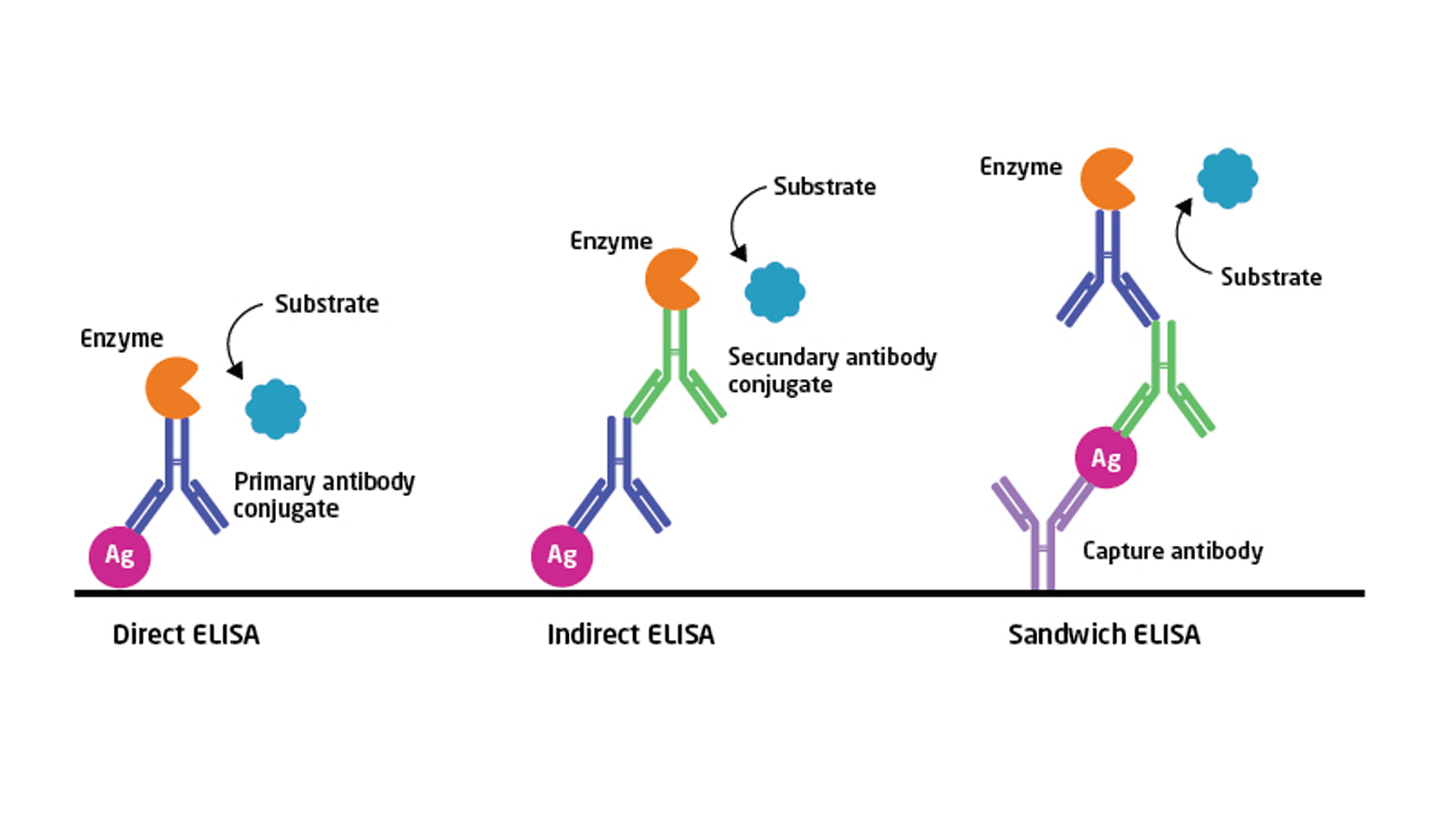ELISA
The Meso Scale Discovery (MSD) platform is based on electrochemiluminescence and provides a rapid and high performance method for quantifying levels of one to ten analytes within a single, small-volume sample. With this technology, single or multiple spots within each well (on a 96-well plate) are coupled with ligands that specifically bind the analyte. MSD assays are known to have high sensitivity due to electrochemical signal amplification.

We offer to:
-
Develop new assays or kits for the ELISA platform, e.g. biomarker assays
-
Run existing ELISA kits for customers and collaborators - both in large- and small-scale setups
ELISA procedure:
- Ligands are immobilized in 96-wells plates
- Samples (e.g. plasma, serum, milk, saliva) are added followed by detection reagents including a reporter enzyme and a substrate that changes color when modified by the enzyme (using intermittent wash steps)
- Absorbance is read in an ELISA reader and results are reported as optical density values (OD values)
- ELISA can be used with e.g. indirect, capture sandwich, competition and genomic assay setups